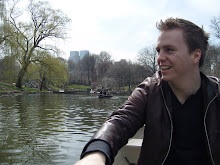
As previous posts on The Conversation and Afterlife suggested, I'm very interested in films which are about the act of filmmaking itself. Such films figure prominently in my thesis, and I think there are many more of them than may be initially obvious.
Last week I finally had Sky+ installed. It's the first time I've had a functioning television recorder for years - we still have a VCR for watching video library tapes and charity shop Disney films, but the picture quality and the practicality of using it with freeview or Sky boxes means it's not been used to record for several years. Regaining that capability with Sky+ has reminded me of a phrase used during the initial popularisation of home tape recorders which I found during my research - timeshifting.
It's a grand title for something which seems to us now so banal - recording a program and then watching it later - and it's telling that even though I grew up while VCRs were very much a novelty (child of the '80s, I lived through video nasties and watched Star Wars on video once a weekend at my Nana's house in London) I wasn't familiar with it until I read contemporary reports.
But at the time it represented a significant shift in the relationship between viewer and program. Previously, films and television had been entirely illusory - they existed only as images, sound and ideas - and entirely out of our control, shown at appointed times which audiences were forced to observe. The arrival of videotapes allowed viewers to watch on their own terms, and transformed programs and films into a physical objects on a mass scale for the first time.
This is a conceptual change as much as anything - the idea of what cinema is was changing. Several films made towards the end of the '70s and through the '80s explore this shift, and none more fully or intelligently than David Cronenberg's Videodrome. It's a film about the extension of television into consciousness, about the fact that us and the things we watch are no longer discreet and distinct parties - we are fluid and mingling. Physically so, in the film's reconfiguration of things, as shown in this brilliant scene.
And you thought it was just mental body horror with some tits thrown in.
I find films which do similar things fascinating. Douglas Trumbull's rather less well known Brainstorm was made the same year as Videodrome, 1983, and has Christopher Walken's scientist perfecting a system which can record human experiences - another intersection of technology and consciousness, and example of capturing sensory information. A little later Steven Soderbergh's sex, lies and videotape featured a man who has replaced real physical experiences with non-physical recorded ones - video as a substitute for reality.
Sky+, of course, does much more than record - it pauses and rewinds live television, and it can even analyse your habits and make program suggestions for you. It's binding us even closer to the things we watch, and blurring the lines between lived and viewed experinces even further. Needless to say, if my television hasn't morphed into a pulsating organ within six months, I'll be cancelling my subscription.

2 comments:
That scene is super creepy. Great film.
Yes! Brainstorm! And its sort of ideological sequel Strange Days.
Post a Comment